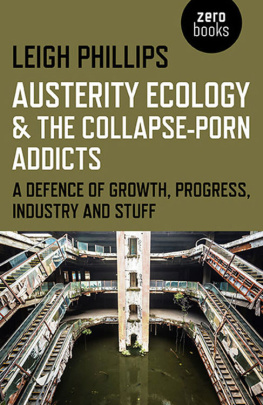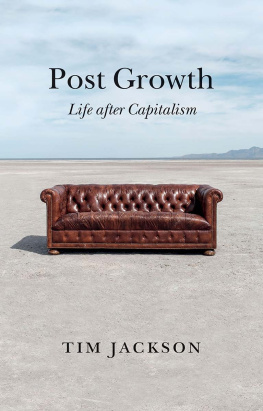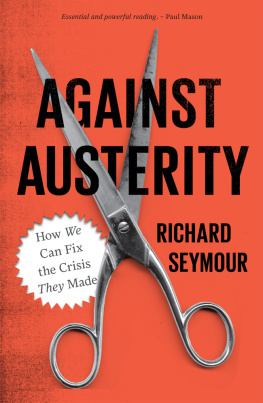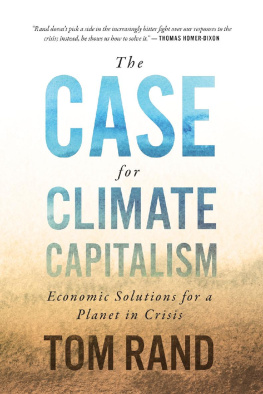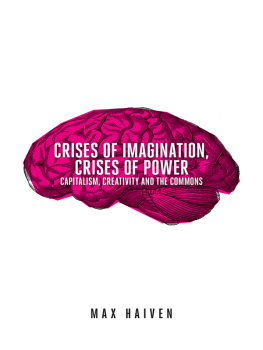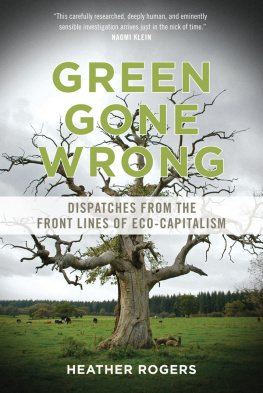First published by Zero Books, 2015
Zero Books is an imprint of John Hunt Publishing Ltd., Laurel House, Station Approach,
Alresford, Hants, SO24 9JH, UK
www.johnhuntpublishing.com
www.zero-books.net
For distributor details and how to order please visit the Ordering section on our website.
Text copyright: Leigh Phillips 2014
ISBN: 978 1 78279 960 3
Library of Congress Control Number: 2015930348
All rights reserved. Except for brief quotations in critical articles or reviews, no part of this book may be reproduced in any manner without prior written permission from the publishers.
The rights of Leigh Phillips as author have been asserted in accordance with the Copyright, Designs and Patents Act 1988.
A CIP catalogue record for this book is available from the British Library.
Design: Stuart Davies
Printed and bound by CPI Group (UK) Ltd, Croydon, CR0 4YY, UK
We operate a distinctive and ethical publishing philosophy in all areas of our business, from our global network of authors to production and worldwide distribution.
CONTENTS
O God, I could be bounded in a nutshell and count myself a king of infinite space, were it not that I have bad dreams.
Hamlet, Act 2, Scene 2
VISUALIZE INDUSTRIAL COLLAPSE
Earth First! Bumper-sticker
Preface
A Mexico City suburb, June 2012
Framed posters of Subcomandante Marcos, with his trademark balaclava and pipe, and of his fellow Zapatista rebels are hung on the walls of her apartment-cum-office.
Its an uncomfortably nostalgic moment for me. I am briefly distracted from the interview I am supposed to be conducting as I think how I used to have Zapatista posters just like them on my walls. The militant indigenous-socialist group from the southern Mexican state of Chiapas had captured the imagination of the activist left in the 1990s via their resistance to the North American Free Trade Agreement (NAFTA) and helped inspire what came to be called the anti-globalisation movement around the world at the turn of the millenniuma movement I had been heavily involved in as a student before I became a journalist.
I refocus and turn back to the interview. I am speaking to Silvia Ribeiro, the Latin American director of the Action Group on Erosion, Technology and Concentration, more commonly known as the ETC Group, pronounced et cetera. ETC is a boutique environmentalist NGO that specialises in critiques of advanced technology, based in Ottawa but with a couple of offices in the Mexican capital and the Philippines. Their substantial international influence belies their small size however, as ETC publications often serve as the foundation of global campaigns mounted by much larger groups such as Greenpeace or Friends of the Earth. The worldwide movement against genetic modification, for example, was largely born of the work of ETCs co-founder, Pat Mooney. They are fierce opponents of the biotechnology sector in general and currently working hard to build international opposition to cloning, the emerging field of synthetic biology, and a suite of medical interventions they are calling human enhancement. Neuroscience, geo-engineering and nanotechnology are also the subjects of sharply critical ETC Group publications. It is this last topic, nanotech, that has led me to seek them out.
Over the course of the previous year, a radical environmentalist group taking for itself the strange moniker of Individuals Tending towards Savagery (Individualidades tendiendo a lo salvaje, or ITS, also translatable as Individualities Tending towards the Wild) has launched a series of bombings and attempted bombings of nanotechnology researchers at a number of universities in and near Mexico City. Five such mail bombs have exploded or been found and defused. The group for its part claims to have engaged in 11 such attempts. Three researchers and a security guard have been injuredone scientist severely. The group would in 2013 also retroactively claim responsibility for the murder of biotechnology researcher Ernesto Mndez Salinas, shot in the head by a mysterious assailant in 2011. In their communiqus, the ITS denounce the scientists as the vanguard of an industrial civilisation that is killing the planet. They wish for a return to nature, a return to the wild. A few weeks before my arrival in Mexico, a loosely allied Italian group calling itself the Olga Cell of the Informal Anarchist Federation - International Revolutionary Front has kneecappedthat is, shot in the kneea nuclear engineer in Genoa working for the industrial conglomerate Finmeccanica. The same group sent a letter bomb to the offices of Swiss pro-nuclear lobbyists in 2011 and attempted to bomb IBMs nanotechnology laboratory in Switzerland in 2010. Finmeccanica means bio- and nanotechnology. Finmeccanica means death and suffering, new frontiers of Italian capitalism, the Olga Cell communiqu read.
As a result of this spate of bizarre attacks targeting scientists, I have been sent to Mexico by Nature, the British science journal, to investigate and write a feature on the violence. I speak to a number of academics who have been affected and meet a pair of molecular biologists whose laboratory and that of a neighbouring researcher have twice been targeted by arsonists that they believe to be part of the same eco-anarchist milieu. The ETC Group for its part is not suspected of any links to ITS and has denounced the bombings. Yet ITS makes repeated references to ETC reports on nanotechnology in its statements, and all the nanotech and biotech researchers I speak to are furious at the NGO. When I ask whether they think ETC is connected in any way, one researcher pauses a long time before answering. She then says carefully, diplomatically: No, not directly, but they have helped created a climate where these things can happen.
The ETC Group want a worldwide moratorium on nanotechnology research and warn that the likely future threat is that the merger of living and non-living matter will result in hybrid organisms and products that are not easy to control and behave in unpredictable ways. The researchers dismiss such beliefs as crackpot, but worry that these and similar ideas are nonetheless very mainstream, even if most people would not support the violence of a group like ITS.
Ribeiro for her part is very keen to make clear that her group want nothing to do with ITS. The bombings have been a sick development, she tells me. These kinds of attacksthey are benefiting the development of nanotechnology, she continues. It polarized the discussion. Do you want nanotech or the bomb?
The conversation meanders. While I dont hold the same views on nanotech as ETC, Ribeiro is a trenchant critic of the free market and social injustice, and so am I. Today I may be wearing my science-journalist hat, but I am a lefty myself. For a range of publications, I have written about corporate regulatory capture, lobbyist corruption, and the cruelty of austerity. As a reporter in the European capital for almost a decade, I worked to expose the problems with so many market solutions to global warming, from emissions trading to carbon-capture-and-storage and the fiction of carbon offsets. Ive written about the dangers from Arctic oil and gas exploration, the decimation of healthcare systems in eastern Europe, and the hollowing out of democracy in the wake of the Eurozone crisis. I discover that like me, Silvia is hopeful about the recent Yo Soy 132 mass student movement in Mexico inspired by Occupy Wall Street and the Arab Spring. Theres a lot, an awful lot, that we agree on.

